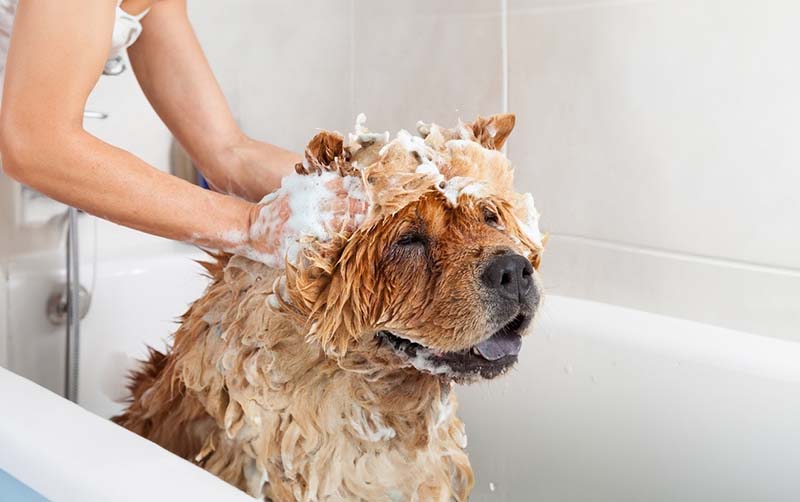Numerous dog owners are familiar with the challenge of flies constantly pestering their pets. Our latest blog post, titled ‘How to Keep Flies Away from Dogs,’ offers useful and effective methods for protecting dogs from annoying and potentially dangerous fly bites.
Discover key strategies to maintain a fly-free space for your furry companion and realize the importance of this safeguard for their health and comfort. This enlightening article serves as a crucial guide for dog owners seeking peace and wellness for their beloved animals.
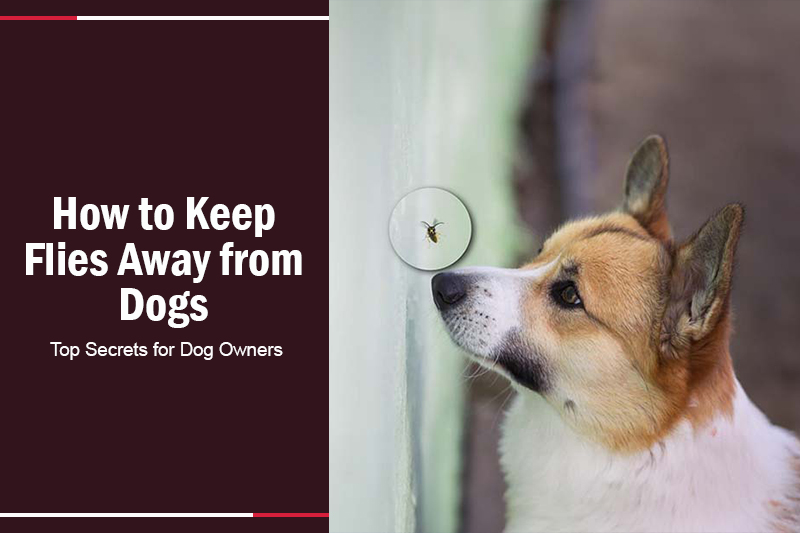
How to Get Rid of Flies on Dogs
Implementing a combination of hygiene, proper waste management, and deterrents can effectively keep flies away from your dog.
Keep Your Dog Clean
Keeping your dog clean is a simple yet effective method to ward off flies. Regular grooming, including baths with dog-friendly shampoo, is essential. In between baths, brush your dog’s fur to remove tangles and dirt accumulation. Flies are attracted to dirt, mud, or skin buildup, so maintaining a clean coat is vital.
Dispose Of Dog Waste Properly
Consistently cleaning up after your dog in the yard is another effective strategy. Flies are attracted to animal waste for feeding and breeding. Regularly removing your dog’s waste can prevent a potential fly infestation and keep them from being drawn to your home.
Ensure Cleanliness in Your Living Space
Apart from keeping your dog and yard tidy, it’s important to keep your home clean to deter flies. While it’s challenging to completely stop flies from entering your yard, maintaining indoor cleanliness is crucial. Regularly take out the trash and avoid leaving food out, including small bits in the sink. Prompt dishwashing is also advisable, as lingering odors can attract flies.
Apply Jelly Oil in Targeted Areas
Even with thorough cleanliness, flies might still bother your dog, particularly in damp environments. To further protect your dog, apply petroleum jelly to areas where flies commonly bite, such as the ears and other areas with thin skin. Flies cannot penetrate the jelly, making it an effective deterrent.
Make Your Own Fly Repellant at Home
If you’re dealing with numerous flies, consider making a homemade fly repellent. A safe and effective mixture for dogs combines equal parts apple cider vinegar and water. Simply mix these in a spray bottle and apply the solution to your dog’s coat. This natural repellent can be used as needed.
Deploy Fly Catchers in Your Home
Finally, fly catchers can be an additional tool in your home. Place them in areas where flies are likely to gather, such as near trash cans, sinks, or entryways. This will help reduce the number of flies in your home, further protecting your dog from these pests.
Why Are There Flies on My Dog?
To effectively keep flies away from your dog, it’s essential to understand what draws these insects to them. Recognizing these factors can significantly aid in managing these unwelcome guests.
Flies, particularly common houseflies, are often drawn to dogs when their fur is tangled or dirty. This creates an ideal environment for flies to feed and breed. Additionally, certain health issues in dogs, such as skin disorders, diarrhea, or other illnesses, can attract flies. These conditions provide optimal conditions for flies to lay eggs.
Some types of flies, like the female horsefly, actively seek out dogs to draw blood. They require blood for egg production, making your dog a potential target for these bites. Understanding these attractants can help you take more targeted steps to protect your pet from flies.
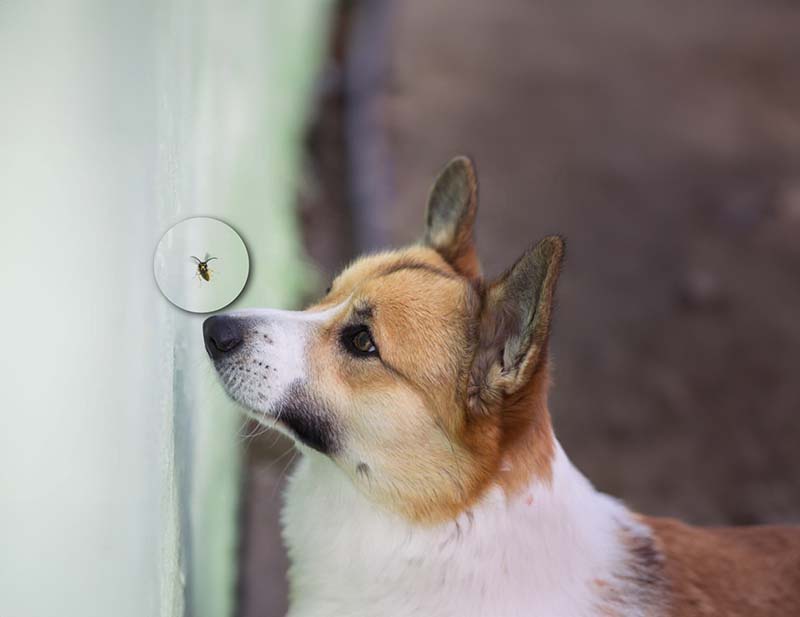
Risks Linked to Fly Bites
While fly bites are known for being bothersome and painful, particularly those from horseflies, their impact on a dog’s health can extend beyond mere discomfort. The primary concern with fly bites is the potential for infection or infestation.
When a fly bites or lays eggs in a dog’s coat, it can lead to various health complications. The bite itself can become infected, and the presence of eggs or larvae can lead to further medical issues. It’s crucial to be vigilant about these risks and take steps to protect your dog from fly bites.
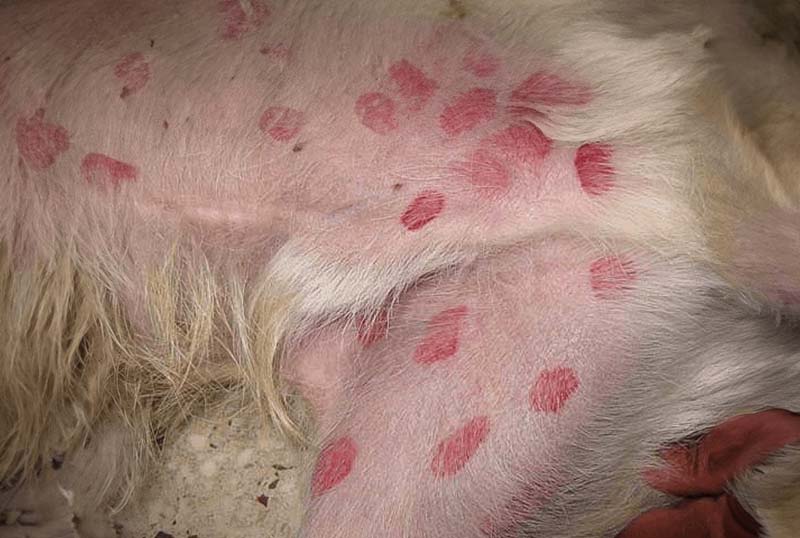
FAQs
Do applying Vaseline on a dogs’ ears help prevent flies?
Indeed, it might sound unconventional, but using Vaseline on dogs ears for flies (petroleum jelly) has some anecdotal backing. Numerous dogs owners report that applying a thin layer of Vaseline behind the ears, on the belly, and between the legs has been effective in repelling flies. This method is particularly helpful for dogs that react negatively to commercial fly repellents or have allergies.
Are fruit flies harmful to dogs?
Fruit fly season, typically at the end of August, can be particularly troublesome for dogs that spend a lot of time outdoors. These flies are known for their persistent biting, which can lead to bleeding, and in severe cases, they can cause significant damage to a dog’s ears, including visible holes or shedding of ear tissue.
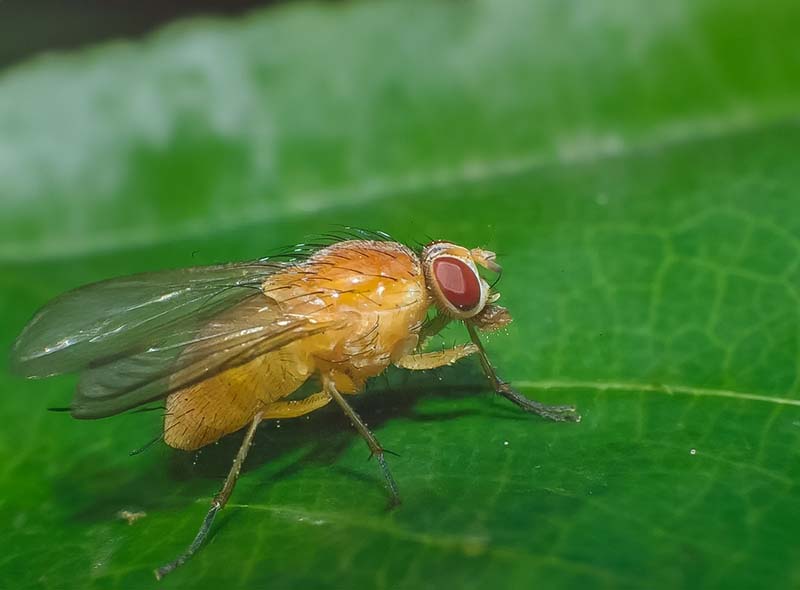
Is it ok for my dog to eat flies?
Generally, if your dog consumes a fly, there’s usually no cause for concern. Although flies are carriers of various diseases and parasites that can affect humans, the acidic environment of a dog’s stomach typically neutralizes most of the harmful bacteria. However, it’s always best to minimize these occurrences when possible.
Conclusion
In conclusion, mastering ‘How to Keep Flies Away from Dogs‘ is crucial for the health and happiness of your furry friends. We hope our tips and insights have provided you
with effective solutions to protect your beloved pets from these pesky invaders. For more insightful guides and expert advice on managing various pests, don’t forget to explore our other blogs at Pestweek. Stay informed and keep your four-legged companions safe and comfortable!

Calina Mabel has over 15 years of experience in the field of journalism and communications. Currently, Calina Mabel is the Content Writer for categories such as Cockroach, Ants, Bed Bugs, Mosquito, Rodent, Termite, and Flies on Pestweek.com. She aims to build content for these categories with a focus on providing valuable and accessible information to readers, in order to create the world’s largest knowledge community about Pests.
All content written by Calina Mabel has been reviewed by Emily Carter.


